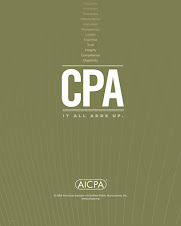Q. Our daughter that is in middle school has learning disabilities and we are sending her to a private school to take advantage of smaller classes. Are there any tax benefits? It is going to be expensive, so anything we can deduct will help.
A. I am sorry to hear that you have issues with your daughter. I know how frustrating and difficult that can be. I respect the commitment that you are making.
You have asked me whether you may deduct the special education costs you are incurring on behalf. It may be possible for some of the cost to be deducted as medical expenses, but there are hoops and limitations.
Expenses that you incur in order to enable your child to compensate for or overcome disabilities or to prepare your child for future normal education or normal living are deductible medical expenses. Thus, any expenses for therapy that helps your child's adaptation are deductible medical expenses. In addition, the expenses of your child's schooling at a “special school” for mentally or physically disabled individuals are deductible (including the cost of an ordinary education) if the resources of the school are the reason for your child's presence and the educational services provided are rendered only as an incident to the medical care provided.
The qualification of a school as a special school depends on the school's curriculum. Thus, a school qualifies as a special school only if the primary focus of its curriculum is to enable students to compensate for or overcome disabilities, and to prepare them for future normal education or normal living. For example, schools that provide special services for children with mental and/or physical disabilities, such as schools for the teaching of Braille or lip reading are special schools because the primary purpose of the schools is alleviating or treating a physical handicap. Similarly, schools with special programs for treating severe learning, mental, psychological or emotional disorders or dyslexia are special schools.
In contrast, a school that does not provide a special program, but is beneficial because of its small class size or because it provides added services within a normal academic setting, is not a special school, since the primary purpose of the school is academic. However, if an ordinary school is willing to develop a special program that meets your child's needs, the school will qualify as a special school, since the determination of whether a school is a special school is made on the basis of your child's curriculum, not the curriculum of the school as a whole.
In addition, the medical expense deduction is part of your itemized deductions and is limited to the amount that exceeds 7.5% of your adjusted gross income unless you have a health saving account; flex spending account or employer provided medical benefits. Make sure that you check with the school and your CPA for detailed guidance.

Monday, May 23, 2011
DEDUCTING SPECIAL EDUCATION COSTS FOR CHILDREN WTIH SPECIAL NEEDS
Subscribe to:
Post Comments (Atom)


No comments:
Post a Comment